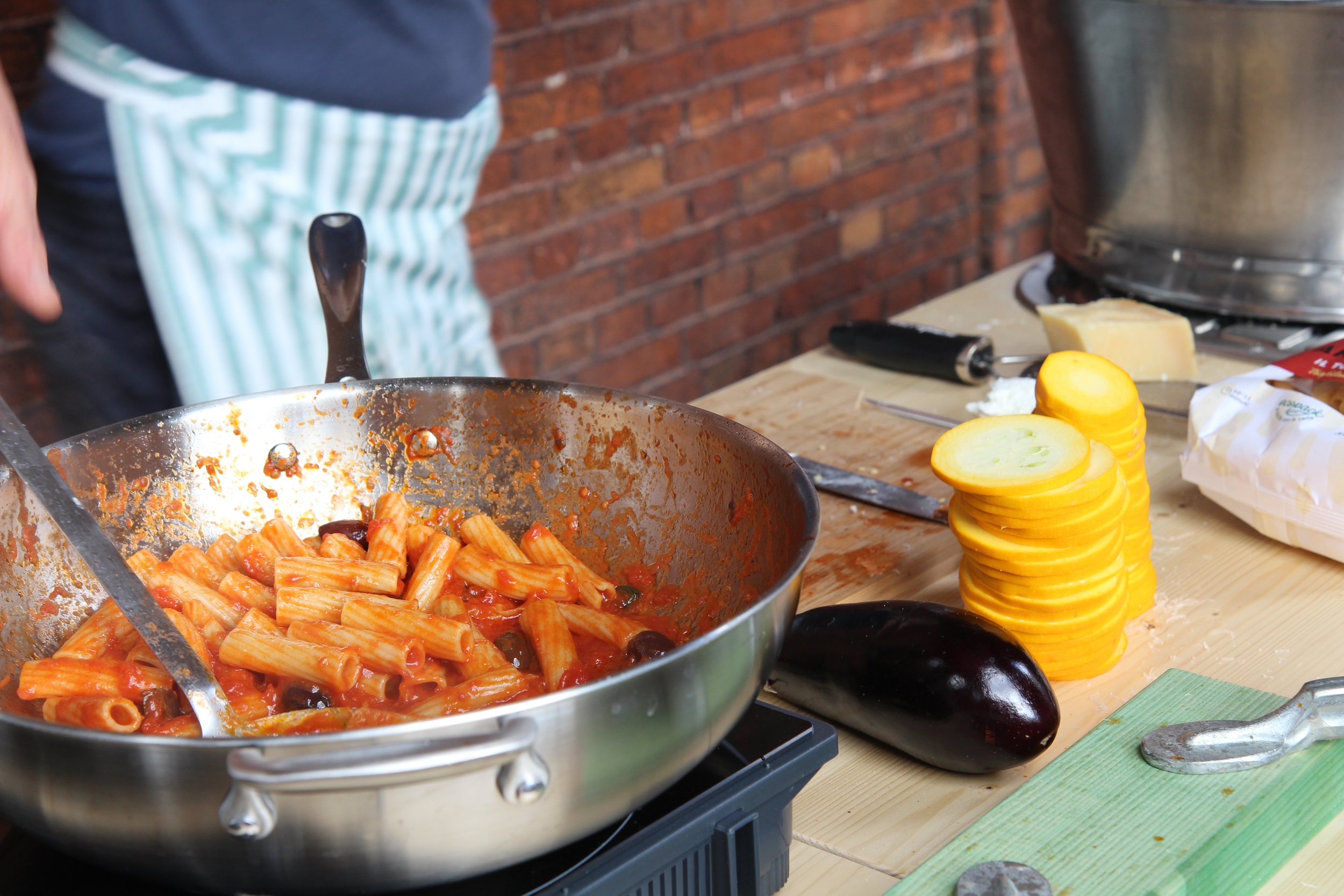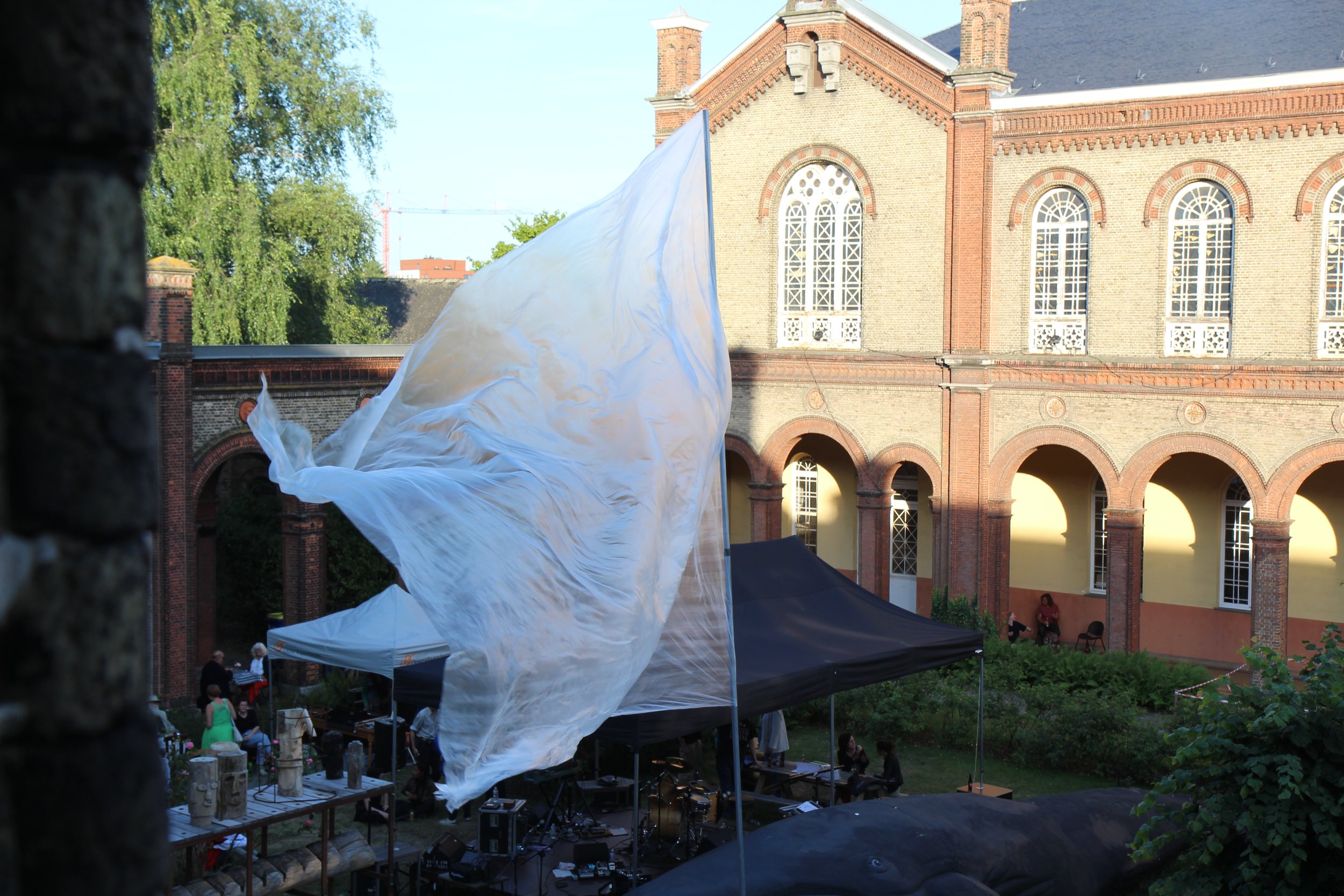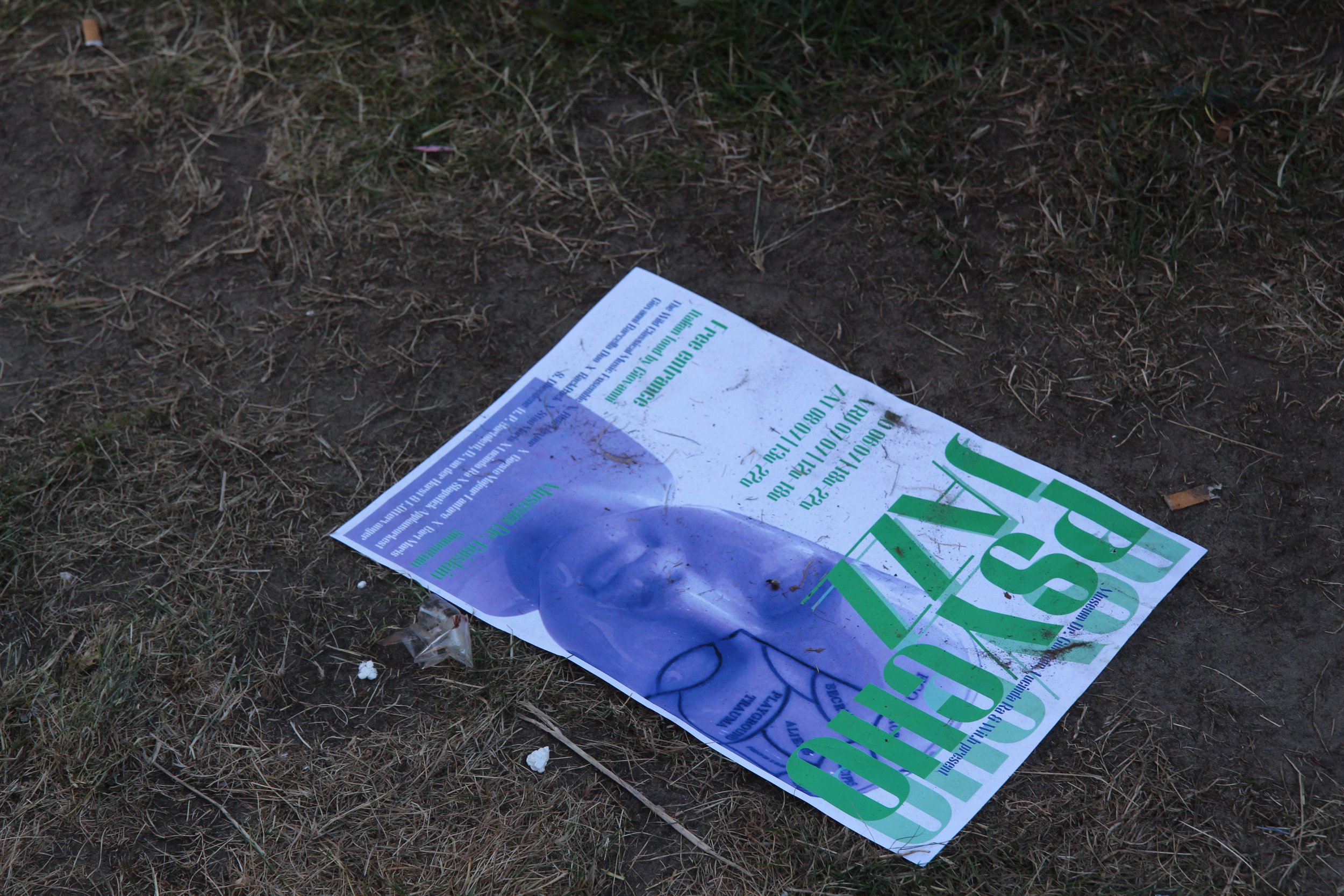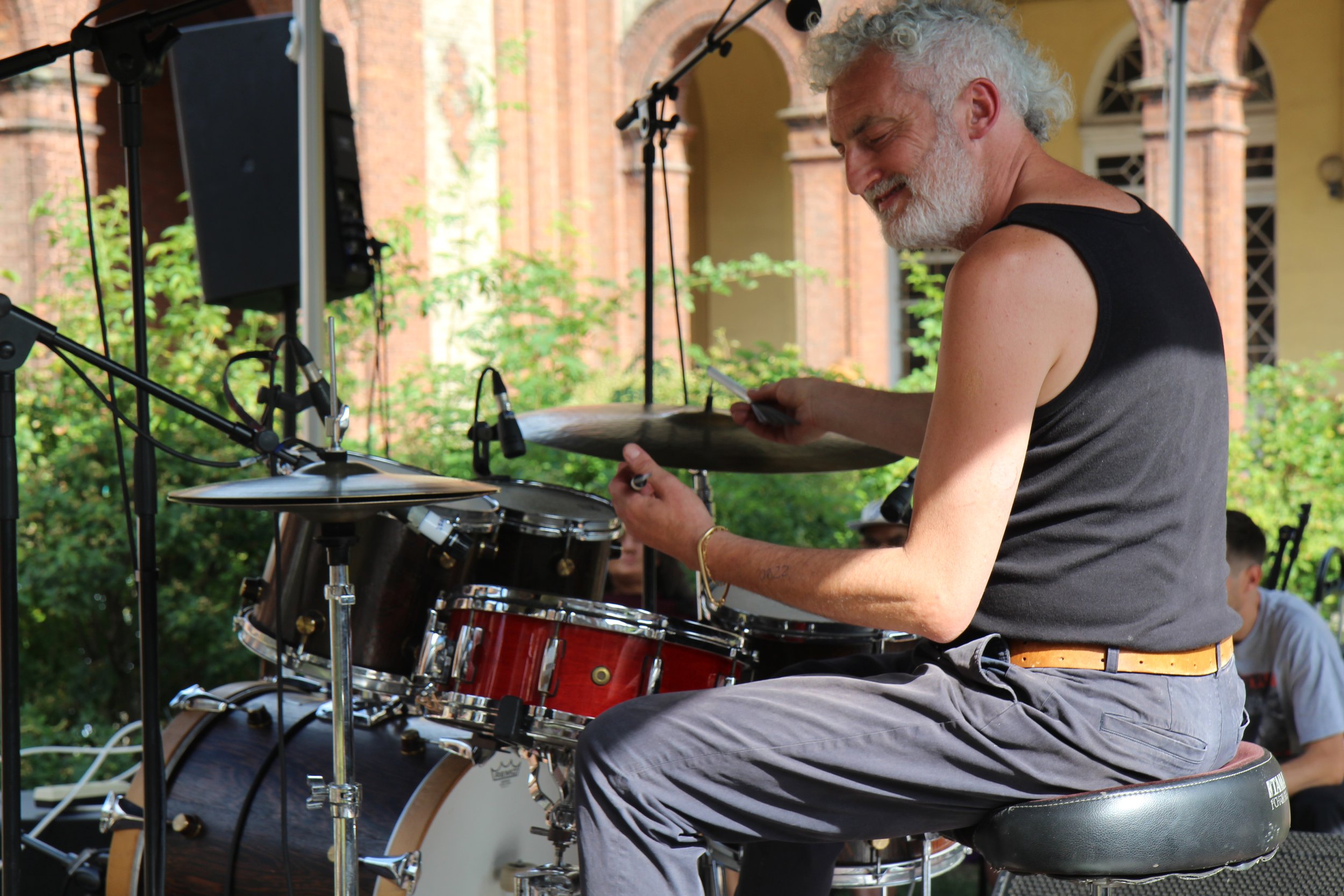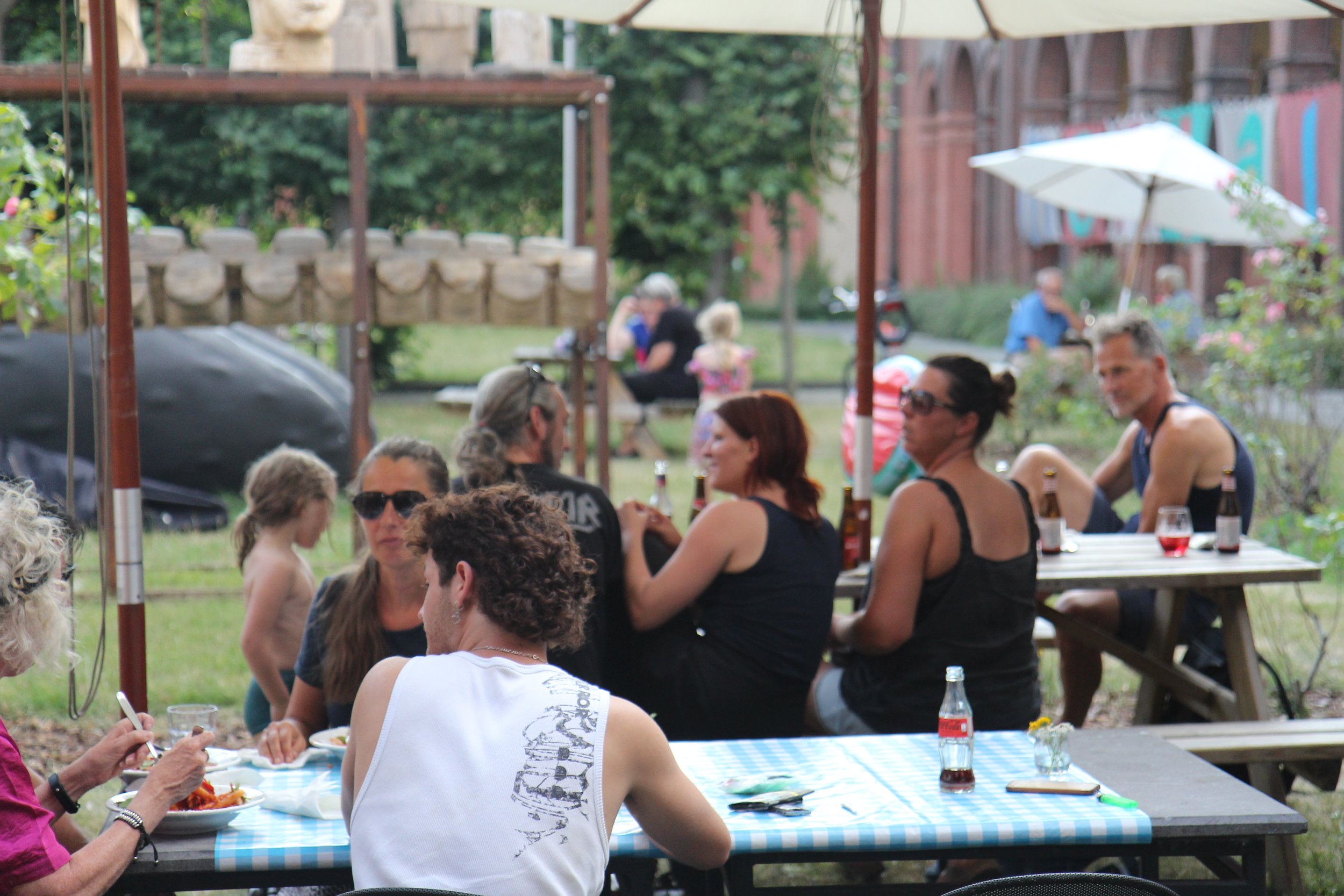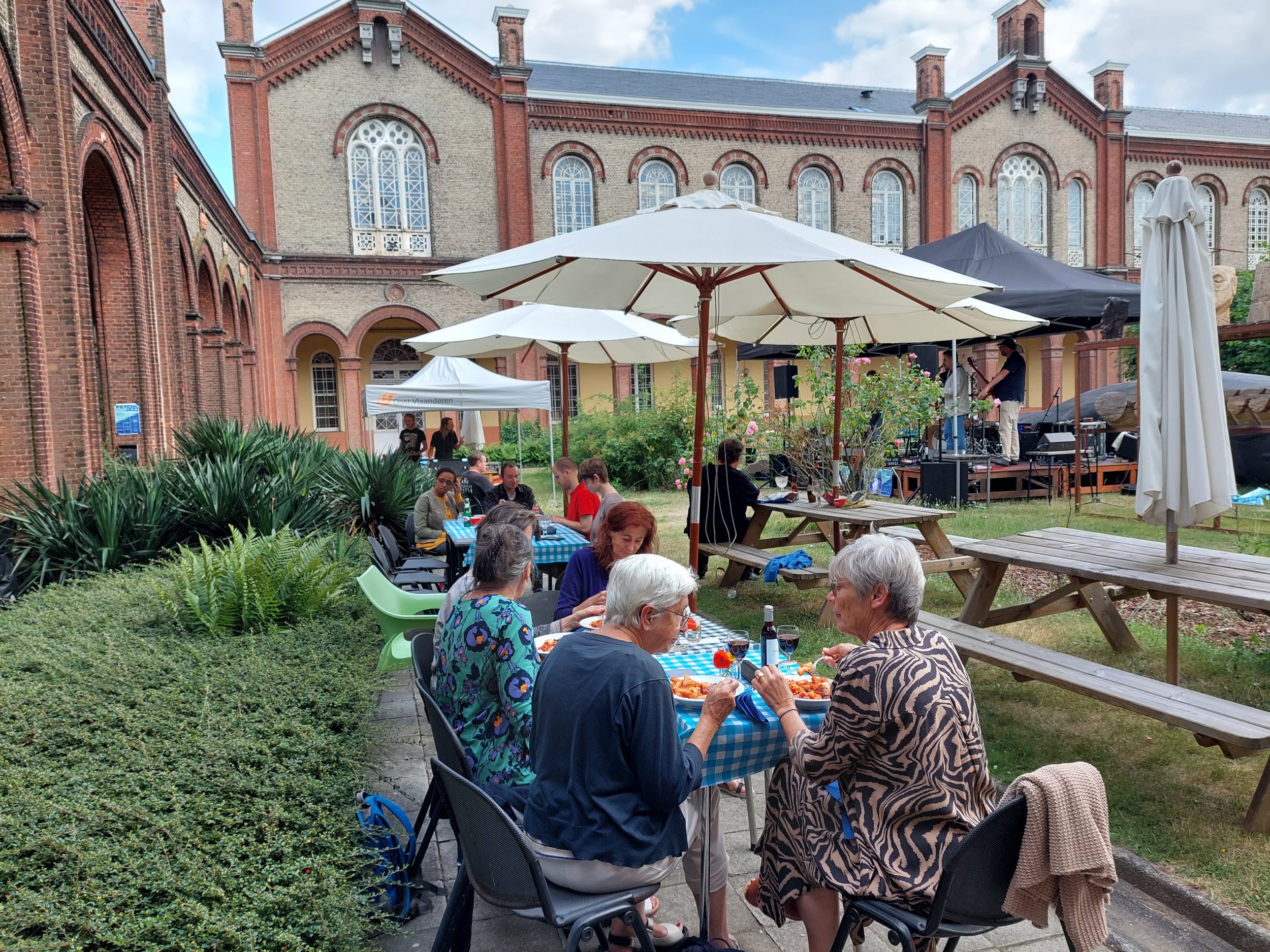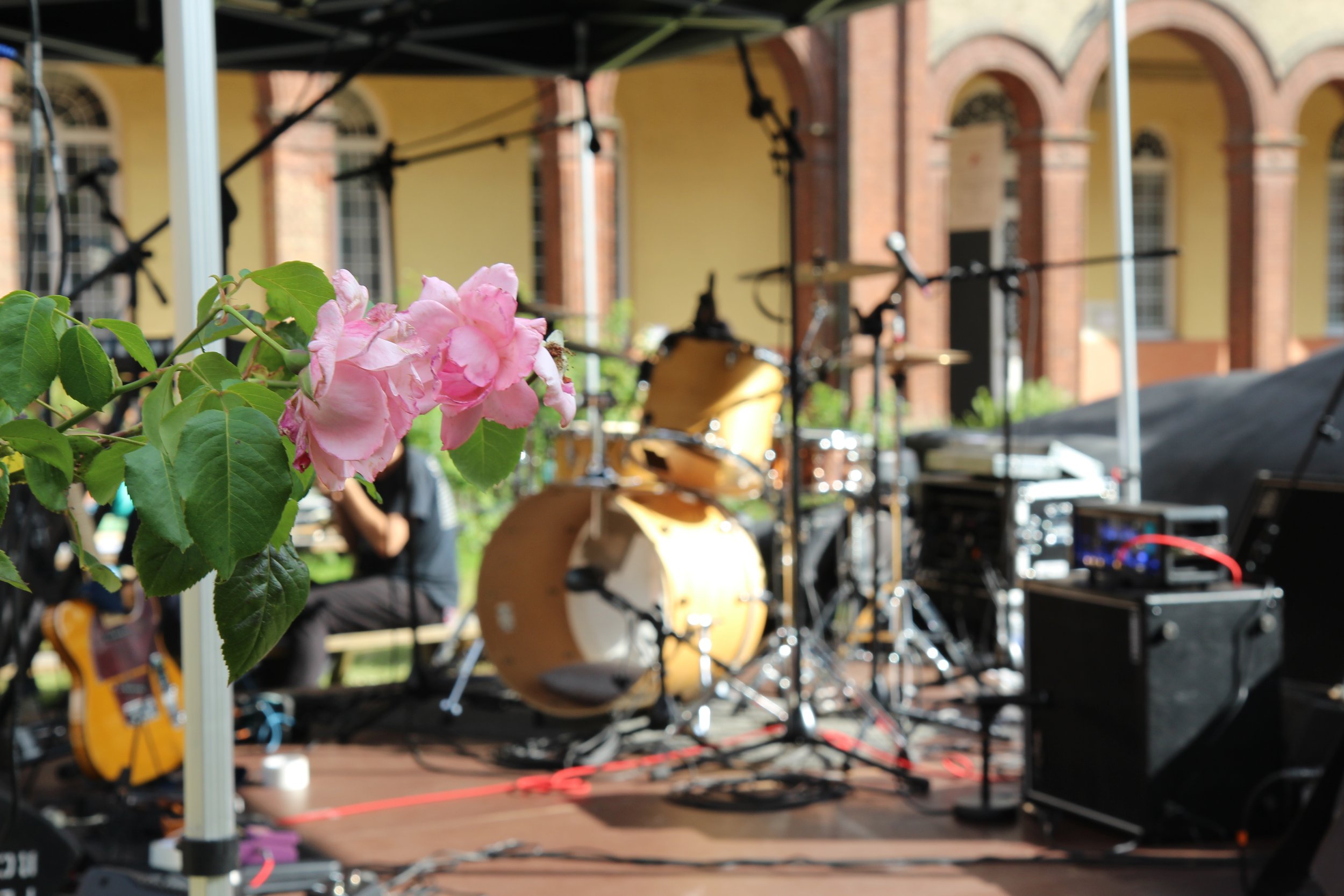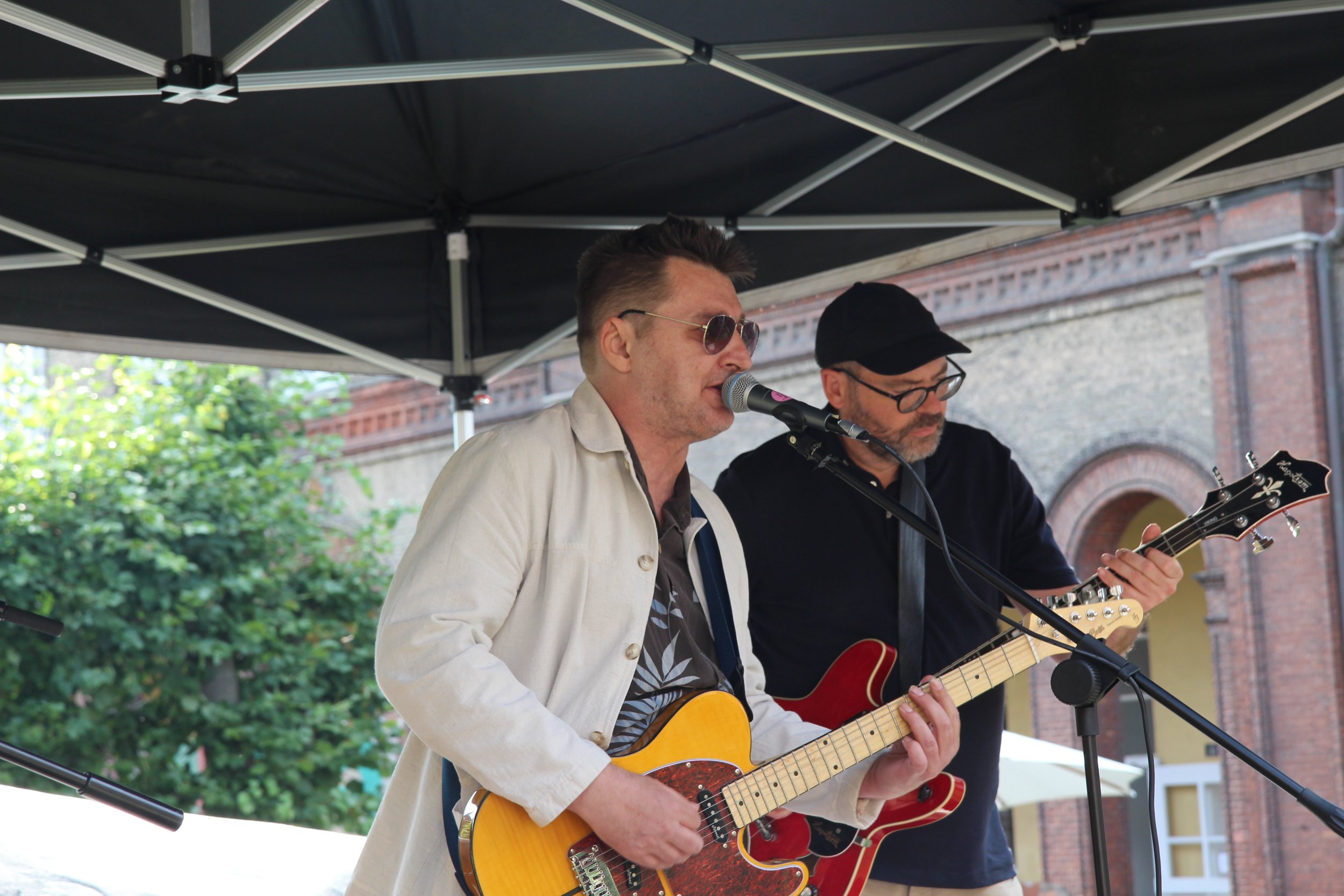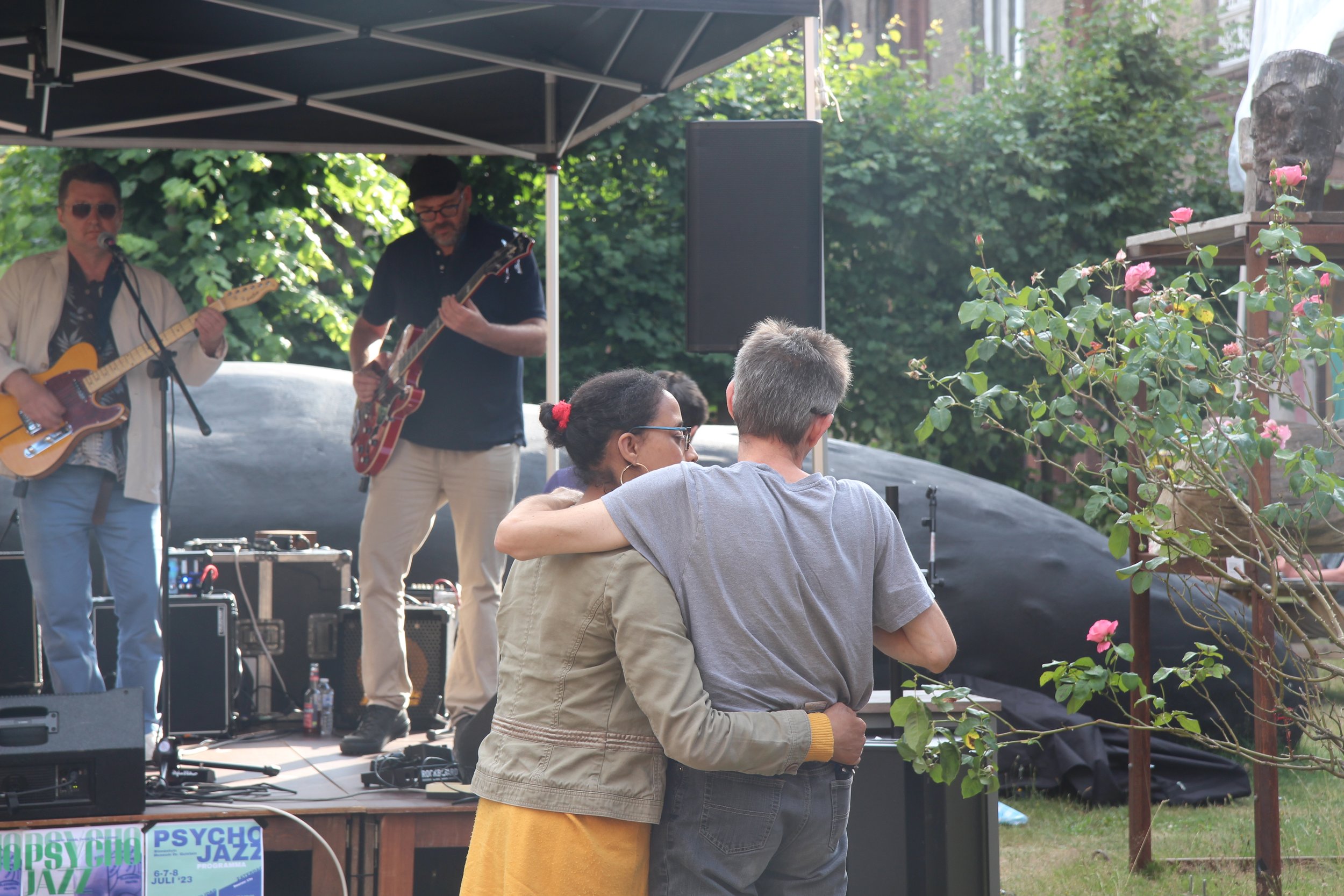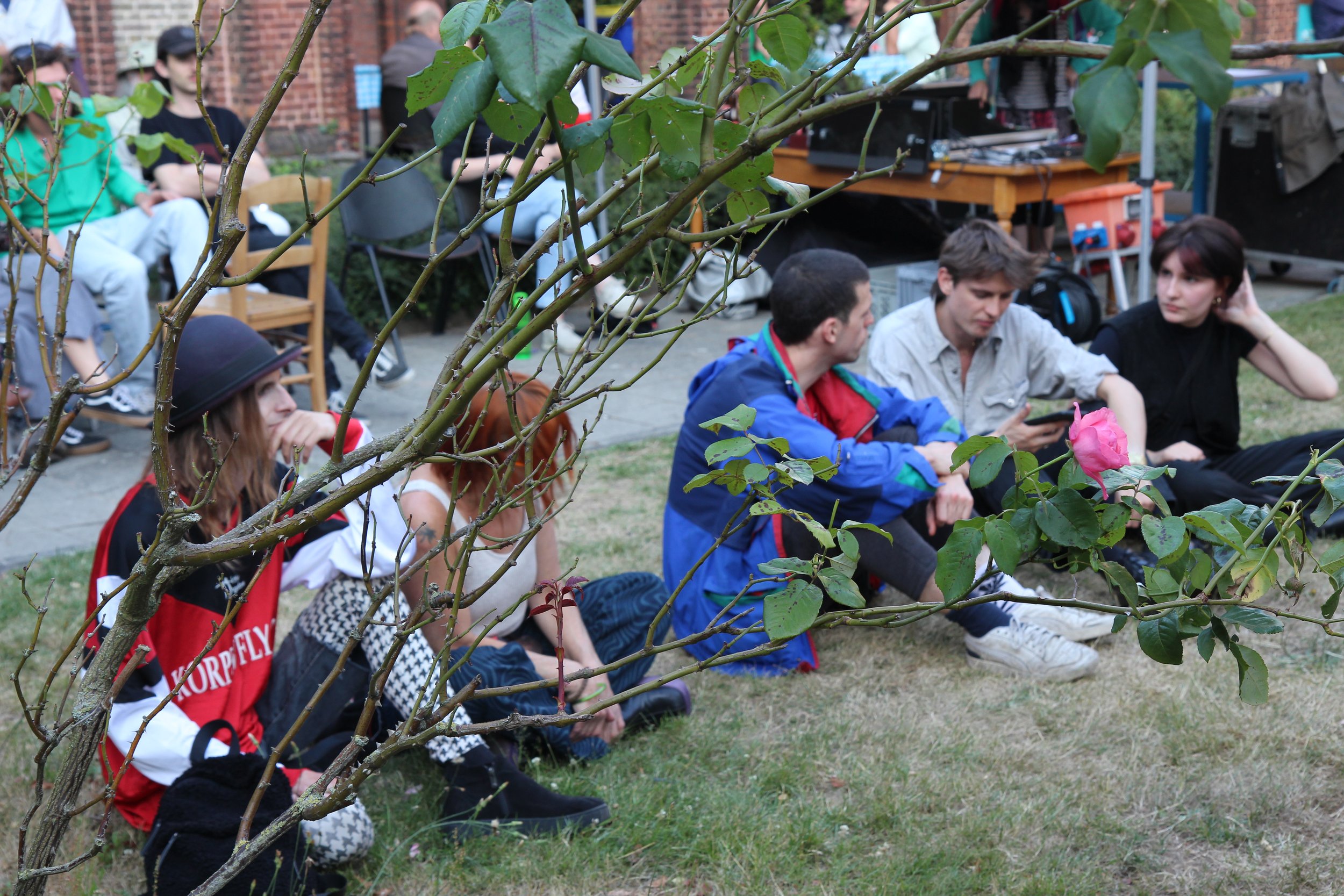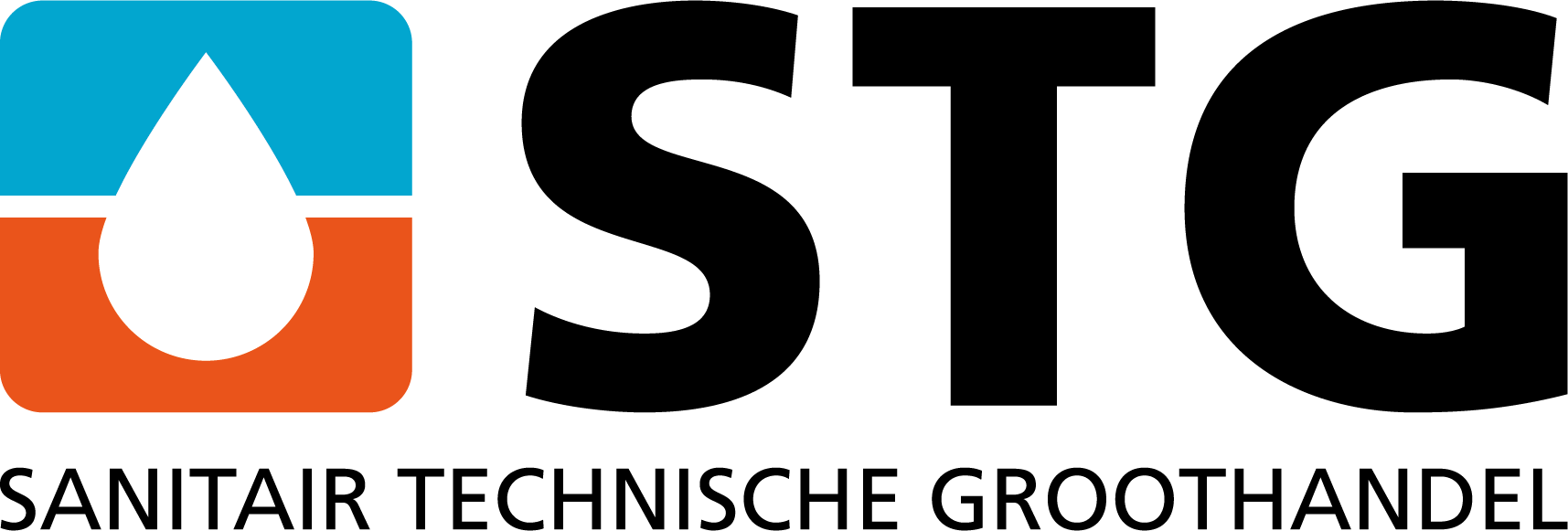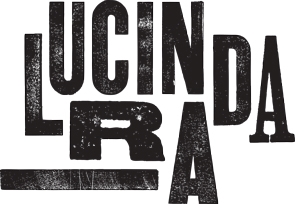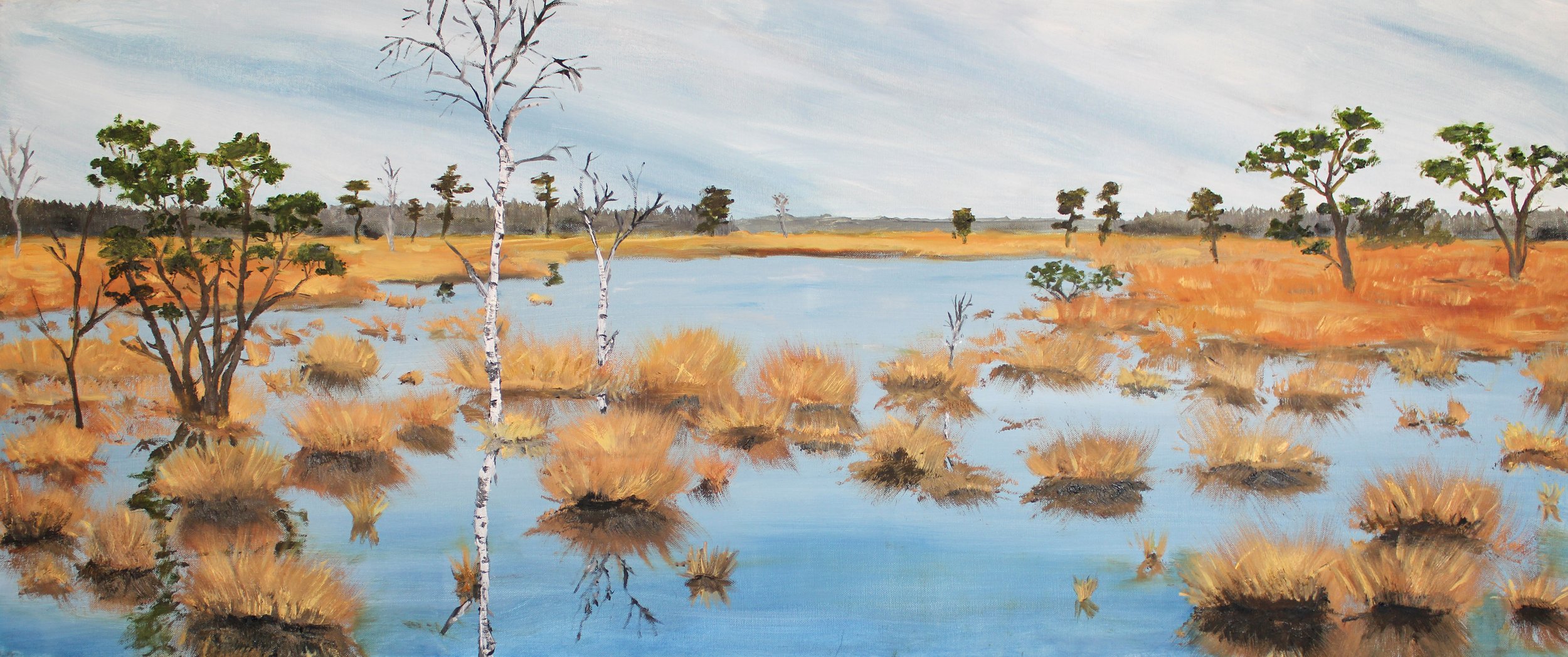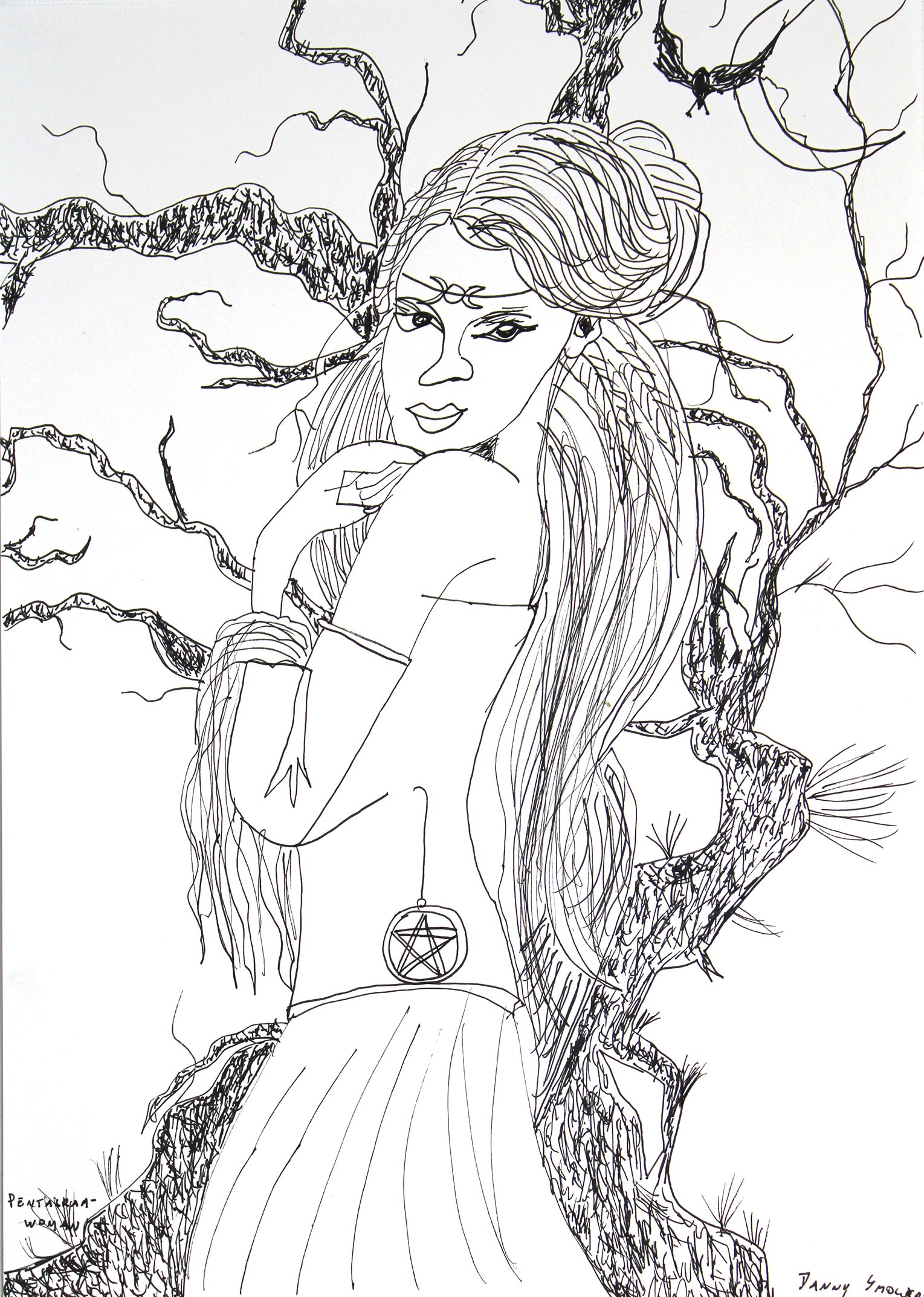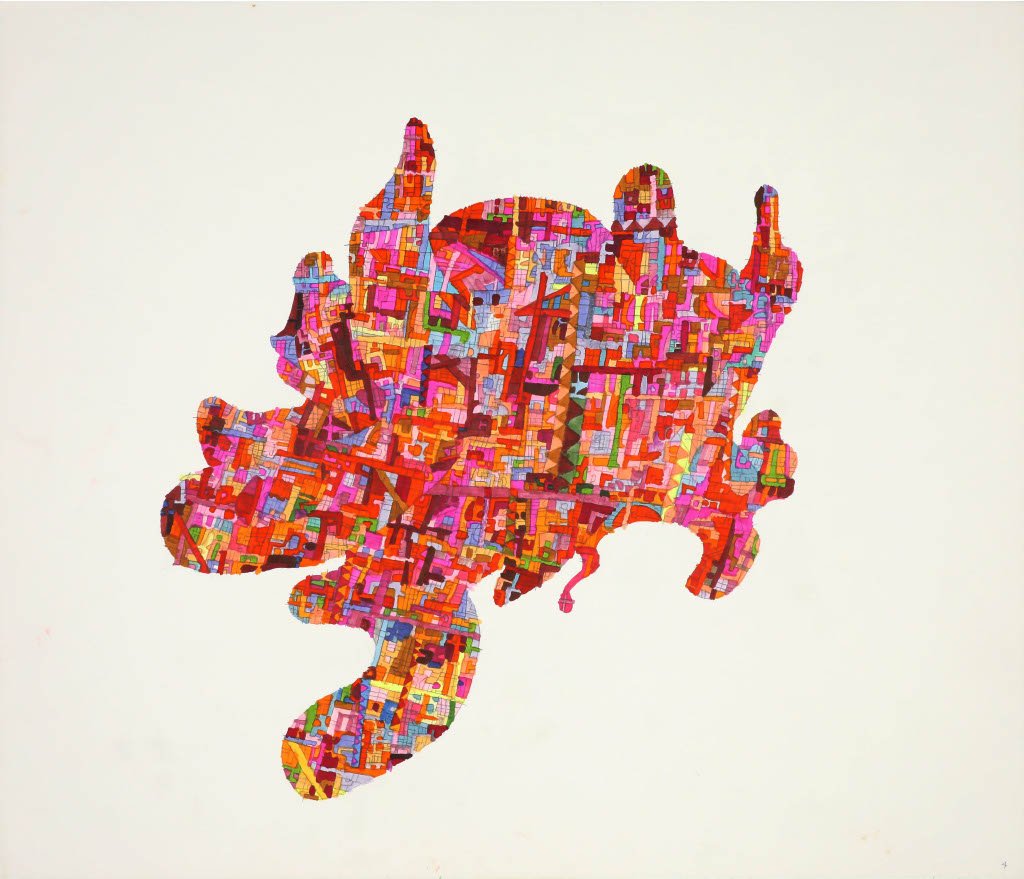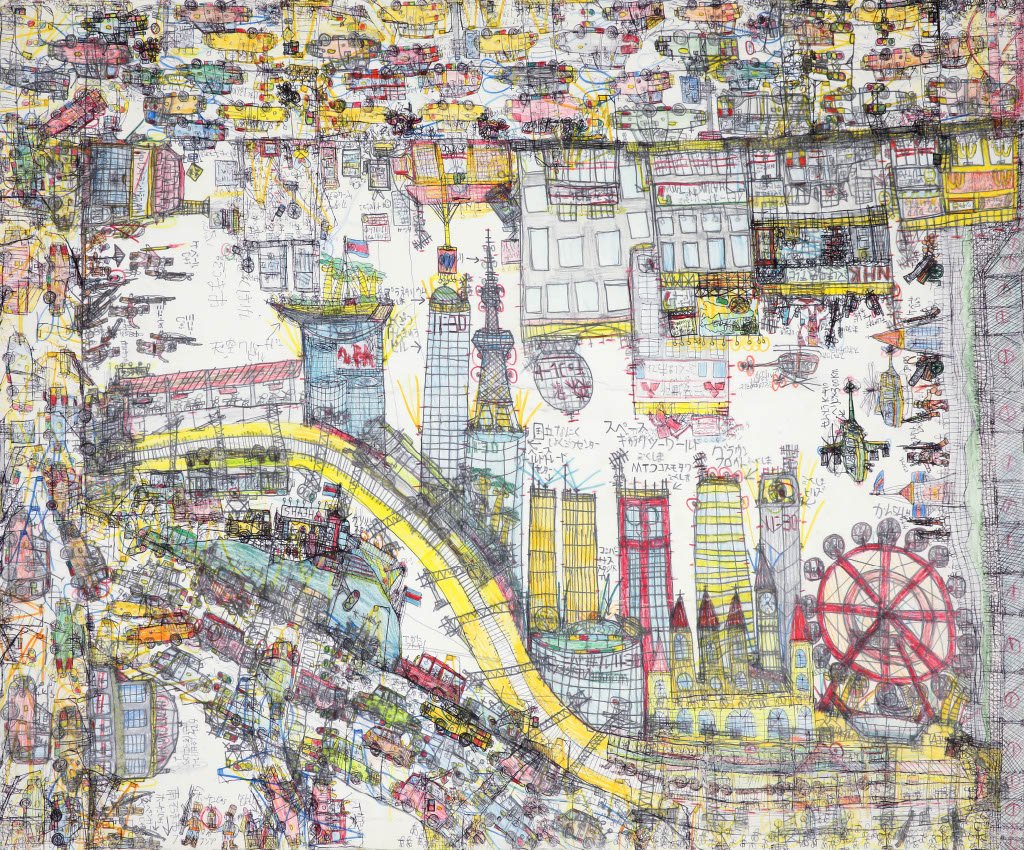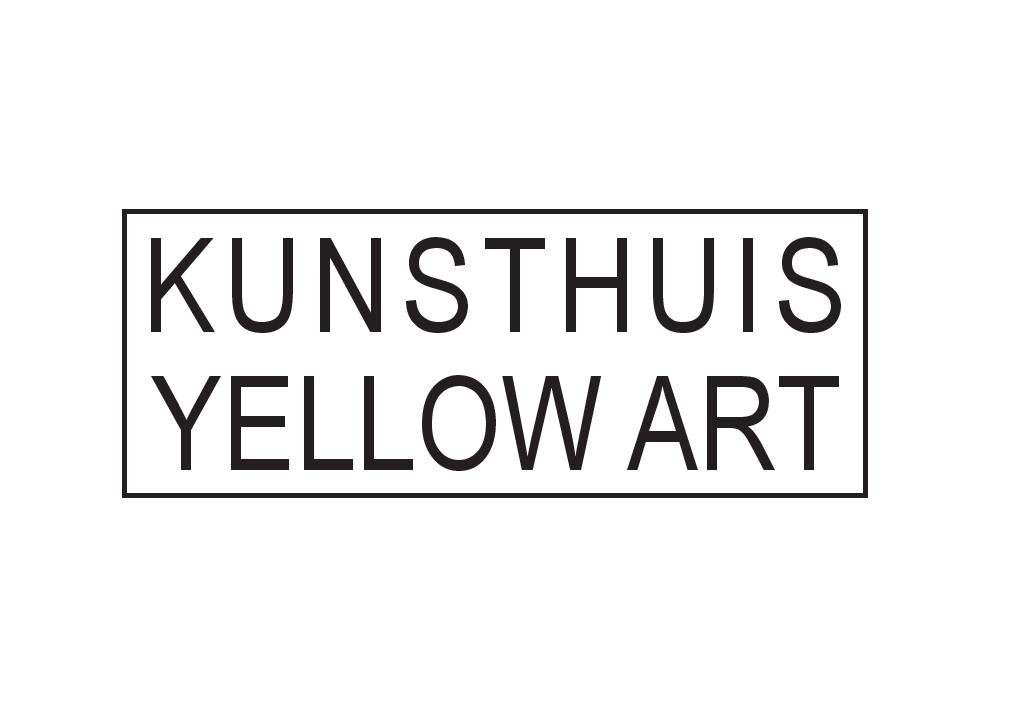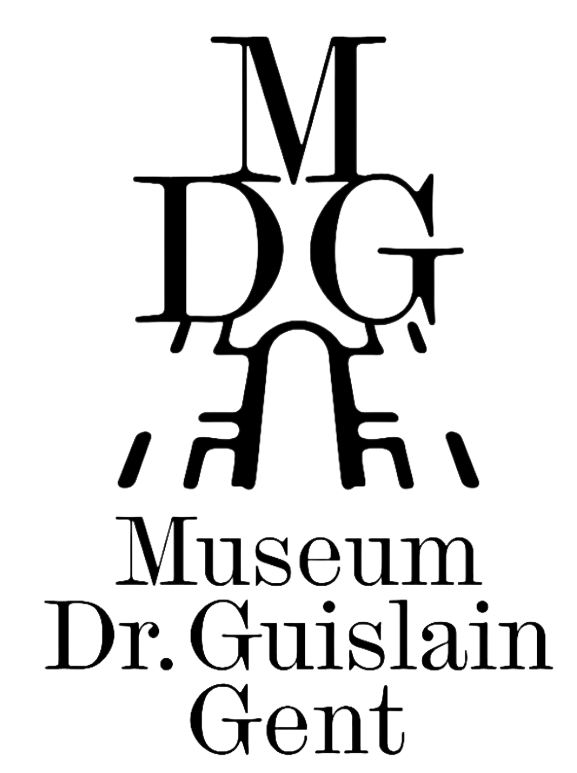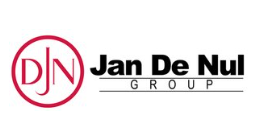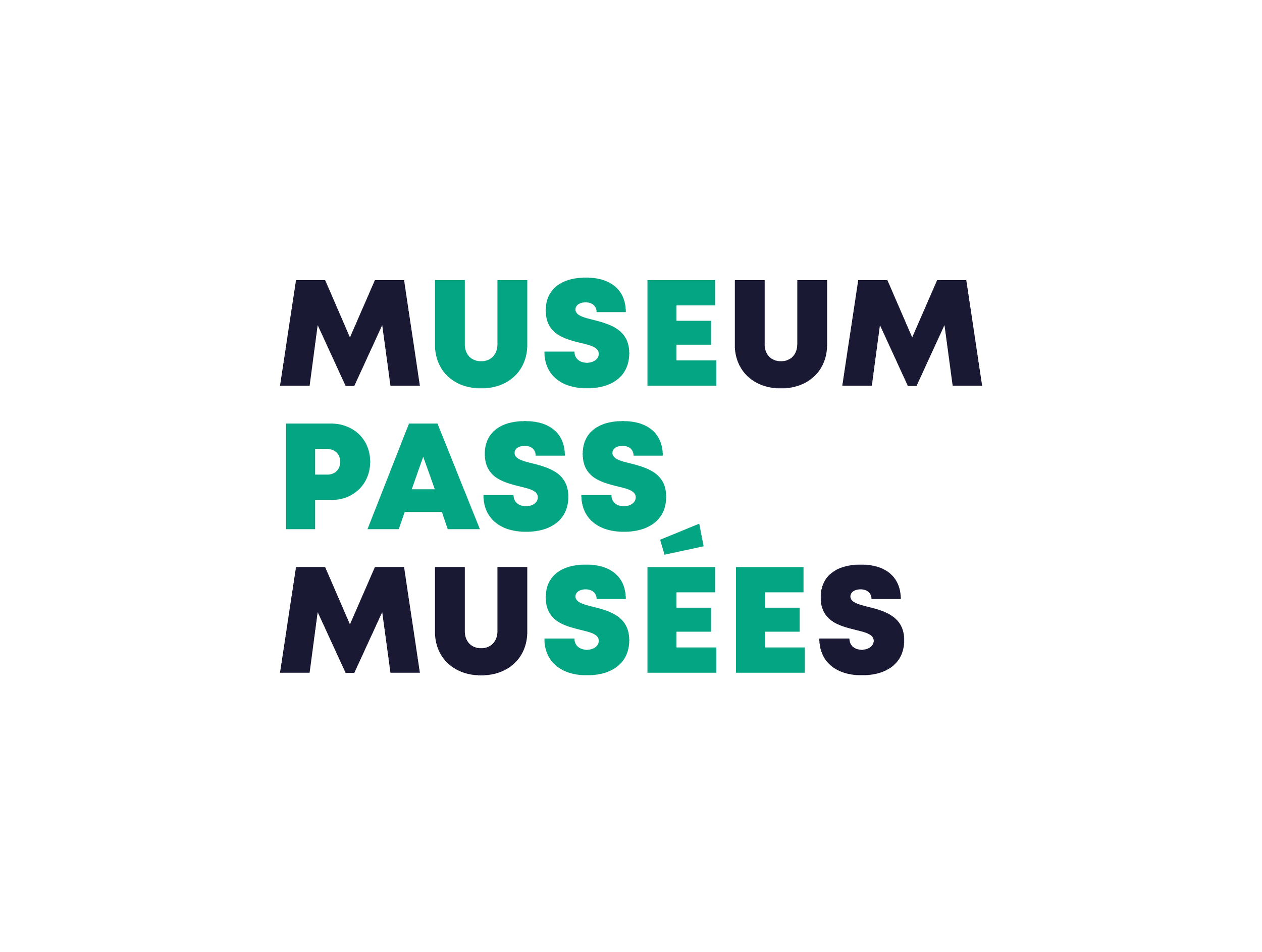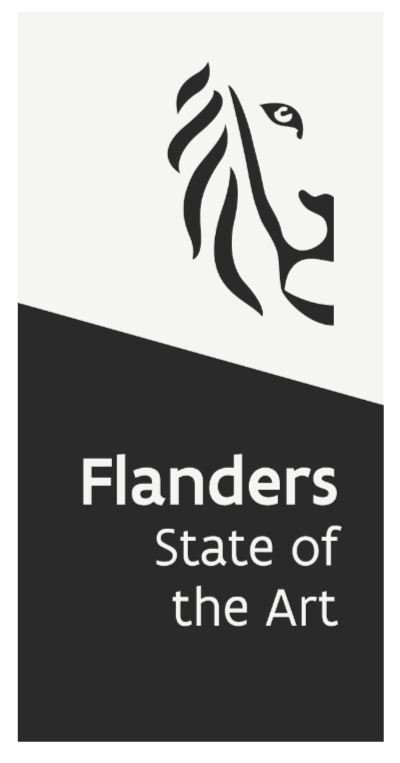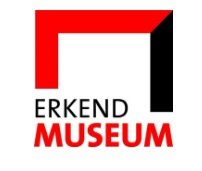
Upcoming events.

TOO MAD TO BE TRUE iii - The Paradoxes of Madness
On October 30 and 31, 2024 (Wednesday and Thursday) the third edition of Too Mad to be True is set to take place in Ghent at the Dr. Guislain Museum, titled The Paradoxes of Madness.
Madness - or psychosis as it is often called – is replete with problems, aporias or contradictions that can be subsumed under the term paradoxes. Such paradoxes appear under various guises and modalities, nested within concepts like language and experience, expression and observation, thought and perception, action and passivity. These oppositions may shift places, or may be seen to paradoxically co-exist in (mad) experience: mad reality can appear as flimsy, insubstantial and strangely unreal, yet also as more intensely real, coherent and meaningful than anything ever experienced; the boundaries of mad subjectivity can take on cosmic proportions, yet private thoughts and feelings may seem under alien control. Understanding mad experience seems to require a philosophical sensitivity and openness to the possibility of contradiction and paradox, whether as features of madness, or perhaps as cracks and fissures running through ordinary subjectivity and reality.
Program
We have put together a diverse program with five key note speakers (see below) and approximately 60 speakers with very different presentations and perspectives. You can find the full program here.
All speakers, abstracts and bio's
In this document you find all abstracts, all speakers, and their short bio's.
Tickets
Online participation: € 20,00 (zoom links will follow later)
Standard: Participation in person + lunch/drinks € 80,00
Psychiatrists: Participation in person + lunch/drinks (accreditation at the Dutch NVvP is requested) € 120,00
Students: Participation in person + lunch/drinks € 40,00
Tickets are available here. For questions and more info, send us an email via info@psychiatrieenfilosofie.nl
Donors to the foundation receive a 15 percent discount, email us for the promotion code.
In 2021 we held the first Too Mad to be True conference in Ghent, with as general theme Philosophies of Madness. In 2023 the second TMTBT conference took place which focused on the Promises and Perils of the First Person Perspective.
Keynote speakers 2024
Lorna Collins
Dr. Lorna Collins is an artist, filmmaker, writer and researcher in creative health, based in South-East England. She writes about art, philosophy and mental health, in books such as Making Sense: Art Practice and Transformative Therapeutics. She also writes fiction and poetry. Her creative œuvre engages with her lived experience of traumatic brain injury and consequent condition of organic psychosis. She is currently working on a documentary film about this theme, and an Arts Council-funded research project ("A Creative Transformation") about the brain, trauma, mental health and creativity. https://lornacollins.com @sensinglorna
Being psychotic: madness as vulnerability, creativity and power
The visions I bring to the world of “Too Mad To Be True” are based on my lived experiences of having ‘organic psychosis’. This is a medical condition, which leads me to have continuous hallucinations. In this performative presentation, I offer my ‘mad’ visions, which take the form of a mobius strip. From one perspective on this mobius strip, we see how I am defined by a medical diagnostic system, which makes it very risky to describe my experiences because if I say anything at all, I run the risk of being detained. This has happened in the past. However, expression is what enables me to carry on and manage life. I fold the moebius strip over onto the other side. Here we see my infinite creativity, which allows me to cope and live within this system. I will show remnants from film, artworks and performance which illustrate this fact. We also see how they open up a parallel layer of reality, which endorses novel senses of identity, meaning, innovation and productivity. My hallucinations certainly enable rather than disable me, even when they are violent and destructive. This viewpoint is perhaps controversial, perhaps empowering. I will be asking questions such as: Can we ever get out of the medical model (and do we really want to)? When do hallucinations cease to be creative experiences, and become clinical symptoms, an aetiology, or signs of 'illness'? Who decides this? How can the two sides of the mobius strip be resolved? I will show how and where to fold and cross the borders of the mobius strip, until there is no difference between them, but a pure threshold of expression and creativity. Opening discourse and conversations – such as we have at this event – frees up the system. Let us kickstart, experiment and evolve with new practice.
Sofia Jeppsson
Sofia Jeppsson is associate professor of philosophy at Umeå University in northern Sweden. She started her philosophical career writing on free will, moral responsibility and topics in applied ethics. In 2018, when she gained her current position with stability and job security, she fully came out of the madness closet, and has since then published primarily on topics concerned with madness and psychiatry.
Sane fears and paradoxical madness
The word “paradoxical” can be used both in a looser colloquial sense – about things like inherent tensions, or unexpected results – and a strict philosophical sense. It is vital to keep these different meanings apart in philosophical discussions. Nevertheless, philosophers of psychiatry often fail to do so when they argue that some experiences that madpeople describe are too paradoxical to exist. Why do otherwise smart philosophers argue so badly about madness? I believe they are often driven by fear. They find it frightening to contemplate that people might experience radically different realities. To quote a psychiatrist I know: We are so used to sharing a single consensus reality, but psychosis patients make holes in it. Philosophers (and clinicians, other researchers and scholars) who insist that no one actually have such experiences, must explain why madpeople nevertheless claim that they do. Two radically different approaches come up in the literature: Some argue that madpeople probably have fairly ordinary experiences, but talk in a confused and highly misleading manner. Others dismiss both madpeople and their experiences as fundamentally incomprehensible – we should not even try to understand them, there is no point. Both approaches can alleviate sane fears; either by presenting madpeople and their experiences as reassuringly similar to the sane, or by keeping them far away at a comforting distance. I have previously shown that many allegedly impossible mad experiences are not, after all, paradoxical in the strict philosophical sense. If philosophers find such experiences inconceivable, it is due to their own mental limitations, not due to these experiences’ inherent paradoxicality. But what if some madpeople do claim to have experienced philosophical paradoxes? There are at least two possible interpretations. First, we could say that these people merely talk in a confused and misleading way. Second, we could accept the possibility that madpeople not only poke holes in consensus reality, but sometimes in logic itself.
Mark Losoncz
Mark Losoncz (1987) defended his PhD thesis at the University of Novi Sad (Serbia) with the title The Concept of Time in Bergson’s and Husserl’s Philosophy. He accomplished part of his doctoral research at École des hautes études en sciences sociales (EHESS) in Paris. As a postdoctoral researcher, he was the guest of the Institute of Ethics at Ludwig-Maximilians-Universität in Munich. He is a researcher at the University of Belgrade (Institute for Philosophy and Social Theory) since 2011. His research interests include: consciousness studies, theories of sense of reality, philosophy of love of and philosophy of death, philosophy & spirituality, and philosophy & psychiatry. He has published several works on the Hungarian minority community in Serbia. He is the (co-)author and/or (co-)editor of fifteen books. His works are published in English, French, German, Serbian/Croatian, Romanian, Slovenian and Hungarian. He received the award for the best philosophical book in Hungarian in 2024.
Tender subversion, or how to believe beyond paradoxes?
I will start my presentation from the question of paradoxes –do they exist at all? I will examine Hegelian synthetic dialectics, Adorno's negative dialects and a philosophy of mysticism in order to throw a light on the possible connection between madness and paradoxicality. I will conclude that madness is paradoxical, both mundane and banal, as well as transpersonally “cosmical”.
My lecture will have the form of a particpatory dialogue, in which I will let me guide by the following ten principles:
1. Conceptualization should be happening almost everywhere. As Diogenes, Umberto Eco and Slavoj Žižek say: even on the toilet. That is to say, we should be open toward the inherent conceptuality of almost everything. To be open toward "whatever singularities".
2. Philosophy is not free at all today. Unfortunately, today's dominant academic philosophy made peace with the System. For instance, philosophy was earlier much more free regarding form. Lucretius wrote a philosophical poem about nature and Nietzsche wrote Zarathustra
3. Philosophy should not remain narcissistically focussed on an alleged originality of "scientific papers". Instead, we should do philosophy with others. In the beach, in social media, while watching an art-work.
4. Accordingly, post-philosophy should be communalistic: commons cannot be consumed and destroyed – there is only common usage within the communities. When commons are used, their value is not minimalized, but even multiplied further.
5. We think and write and read to much. We should not leave all these unnecessary archives to next generations – these burdens. Instead, we should return to pre-Socratic fragments.
6. Humility, poverty and chastity are the Spinozan philosophical virtues. I would add tenderness.
7. Philosophy is free, it does not have to presuppose anything, not even nothingness or emptiness. Philosophy is philosophy precisely because it can be entirely radical, be without premises. However, we have so much pain because of not being empty enough of premises.
8. Let us always imagine how we could falsify, counter-argue ourselves -- in order to serve our ecstasy, that is, leaving space-time, our flesh, this body, this little boy and girl, ourselves, our Central Prison, the ego. But also to keep in tenderly.
9. We should always take into consideration the quadrants (Ken Wilber): nature, community, culture, psycho-spirituality. And even what is transcending all the categories: the One.
10. Despite all our pain and tragedies and vulnerability, we belong to a wonderful world that we must leave tenderly. Let every being be free and happy.
Sebastjan Vörös
Sebastjan Vörös is Associate Professor of Philosophy at the Faculty of Arts, University of Ljubljana, Slovenia. His research interests encompass philosophy of science, epistemology, phenomenology, and philosophy of religion. He is the author of Podobe neupodobljivega (The Images of the Unimaginable; KUD Logos; University of Ljubljana Press 2013), in which he investigates the phenomenon of mystical experiences from neuroscientific, phenomenological, and gnoseological perspectives. He has (co)edited numerous articles on embodiment, enaction and (neuro)phenomenology. Additionally, he has translated several philosophical texts into Slovene, for instance, work by Damasio, Dennett, William James, Whitehead, and Varela and Thompson. Sebastjan Vörös is the head of the transdisciplinary institute Metanoia, and is currently writing a book on the philosophical and scientific work of Francisco Varela.
Of Snakes and Seraphs: Mysticism, Madness, and the Pardoxicality of Life
The title of the talk is borrowed from the now classic study on mysticism, The Varieties of Religious Experience by William James. Towards the end of that fascinating text, James speaks of the “great subliminal or transmarginal region” situated in the hidden recesses of the mind, in which “seraph and snake,” i.e., “classic mysticism,” or mysticism proper, and “diabolical mysticism,” or madness, lie side by side. In my talk, I would like to cast some furtive glances into this mysterious abyss. To begin with, I will argue, contra James, that this “great subliminal or transmarginal region” - the wellspring of both mysticism and madness - is not merely a distinct, deep-seated “mental level,” but signifies the phenomenon of life itself. More specifically, my contention will be that, in both mysticism and madness, we encounter the paradoxicality inherent to life - its ouroboric, circular nature - but that the two modes of being, at least in their “ideal” form, differ in how we respond to, and ultimately integrate, this encounter. Put differently, and more metaphorically, at the heart of vitality lies the ancient serpent-dragon Ouroboros, which, depending on whether its gaze can be withstood or not, can turn into a seraph - or a snake. My talk will consist of two parts. First, by drawing on Francisco Varela’s work on the autopoietic and autonomous systems, I will elucidate what I mean by saying that circularity (recursivity, self-reference) is not only present in life, but constitutes its very “essence.” Above all, I will show that it is integral to both the constitution of the living organism and the constitution of its meaningful relationship with its environment. However, because living beings gravitate towards states of dynamic equilibria, this vital circularity, much like Heraclitean nature, tends to hide itself: it is cloaked behind the temporary stabilities it produces. In the second part, I will argue that, while both the mystic and the madman can be said to come into touch with this hidden, vertiginous core of vitality, the mystic manages to transform the ouroboric dynamism into the (groundless) ground of his existence, whereas the madman fails to do so, and becomes, as it were, fragmented in its ceaseless cycles. I will expand on this topic, and the proposed distinction, by drawing on the phenomenology of anxiety, befuddlement, and wonder.
Natalie Depraz
Natalie Depraz (born 1964) is a French philosopher. She is a specialist in German philosophy, phenomenology, and, more specifically, Edmund Husserl. She is a professor at the University of Rouen Normandy and an academic member of the Husserl Archives at the École normale supérieure (ENS/CNRS). She has worked extensively on the link between phenomenology and neuroscience and, inspired by both Husserl and Varela, she has elaborated a theory and practice of microphenomenology. She has translated, edited, and published numerous books and articles, in French and English, e.g., On becoming aware. A pragmatics of experiencing, 2003 and Attention et vigilance, à la croisée de la phénoménologie et des sciences cognitives, 2014.
A tentative microphenomenology of some schizophrenic disorders. The account of a psychiatrist
Organisers
Jasper Feyaerts (Ghent University), Bart Marius (director of museum dr. Guislain in Ghent) and Wouter Kusters (Foundation for Psychiatry & Philosophy)
Mad caveat
Although madness on this conference is mainly considered on a philosophical and psychopathological level, we cannot forget about madness, on a global, societal level. In the context of global warming and ecological destruction we therefore ask all conference participants to be aware of their CO2 emissions and reduce them as much as possible while traveling to and from the conference.
Background: The Paradoxes of Madness
Madness - or psychosis as it is often called – is replete with problems, obstacles, aporias or contradictions that can be subsumed under the term paradoxes. Such paradoxes appear under various guises and modalities, nested within concepts like language and experience, expression and observation, thought and perception, action and passivity, objectivity and subjectivity. These conceptual oppositions may regularly shift places, or may even be seen to paradoxically co-exist in mad experience: delusions may be upheld with unsurpassable certainty, yet may also seem irrelevant for conducting everyday life; mad reality can appear as flimsy, insubstantial and strangely unreal, yet also as more intensely real, coherent and meaningful than anything ever experienced; the boundaries of mad subjectivity can take on cosmic proportions, encompassing the whole of the universe, yet private thoughts and feelings may seem infinitely far way and under alien control. As such, understanding mad experience seems to require a philosophical sensitivity and openness to the possibility of contradiction and paradox, whether as features that are distinctive to madness, or perhaps as cracks and fissures running through ordinary subjectivity and reality.
In the next 2024 edition of the Too Mad to be True conference, we aim to invite papers and contributions that explore the notion of contradiction and paradox in madness, philosophy and related fields. The following (non-exhaustive) subthemes may be addressed and discussed:
Act and/or affliction: madness is sometimes portrayed as an affliction passively suffered by individuals, yet it may also have—a less emphasized—intentional quality, more or less actively ‘willed’, brought about, and (to some extent) under self-conscious control. Reconciling, or at least acknowledging, these contradictory aspects of act/affliction might be crucial for advancing contemporary understandings of the development and recovery of/from madness.
Freedom and/or necessity: In first person accounts of madness, as well as in psychopathological theories, implicit or explicit notions of freedom versus restriction/determinism are often applied. Some accounts describe madness as a form of transgression, involving boundless human desire and extreme inner freedom. In others, madness is described as something which severely restricts subjective autonomy and freedom, determined by compulsive thoughts, voices and visions.
Self and/or non-self: alterations of selfhood are recognized as crucial features of madness. Some forms of self-experience—e.g., in so-called first-rank symptoms—seem to entail diminshed forms of selfhood, whereas others—e.g., subjectivism, quasi-solipsism, ontological paranoia—seem characterized by an excessive or exaggerated sense of self. In some forms of mad experience, these contradictory and antithetical aspects of self can even combine and co-exist. How can these complex forms of selfhood be understood? And what are their critical implications for contemporary models of so-called minimal self-disorders?
Pride and/or problems: In much modern discourse on psychosis, care and treatment, it is acknowledged that in addition to all negative aspects of psychosis as a mental disorder, there is at least a sense of making strength out of weaknesses, or conceiving a crisis as an opportunity for change. To what extent can madness be considered as something to be proud of (mad pride), something as an extra (psychological) power, and how can both its problematic and its pride aspects be accounted for?
Person and/or system: When we take care of each other, do we act within systemic frameworks, acknowledging theory and institutional responsibilities? Or should care take place on a person-to-person base? How can balances be found between empathic, engaged and personal involvements on the one hand, and professional considerations that take place within a broader social and economic field on the other hand?
Universal and/or aberration: In some theories (e.g., in psychoanalysis), psychosis is approached as an essential trait, common to all human subjectivity, but perhaps varying in the extent to which it becomes manifest. In others, psychosis is identified as something wholly distinct from normality, ascribed to only some individuals and/or occurring at particular moments in time. While the former view might struggle to clarify differences between mad and ordinary subjectivity, the latter might cover over forms of madness already present in everyday experience. How do these oppositions of the universal and the particular play out in theoretical approaches of madness? Is there a way to reconcile them, or should we privilege one over the other?
Literal and/or figurative: How should psychotic language be understood? Is it to be interpreted and translated as a form of metaphorical, figurative, or poetic expression? Or should some statements better be taken at face value, as ordinary descriptive and empirical statements? What contexts of reference and which linguistic approaches can be of relevance in clarifying differences between psychotic and non-psychotic language?
The nature of paradox: What is the philosophical and/or ontological status of paradox? Does it describe a mere figure of thought, a telling sign of confusion, symptomatic of the troubled philosophical or mad mind? Or do paradoxes actually exist in the reality? If so, are all paradoxes formally equal, or should we distinguish between different kinds of paradox (e.g., Zeno’s, McTaggart or Russell’s paradoxes)? And if so, are they perhaps related to different kinds of madness?
Advisory board
Alastair Morgan (Senior Lecturer Mental Health/ Critical Theorist at the University of Manchester, UK).
Angela Woods (Professor of Medical Humanities at the Durham University, UK).
Clara Humpston (Lecturer in Mental Health at the Department of Psychology at the University of York, UK).
Louis Sass (Professor of Clinical Psychology at the Graduate School of Applied and Professional Psychology at Rutgers University, US).
Stijn Vanheule (Professor of Psychoanalysis and Clinical psychological Assessment at Ghent University).

PSYCHO JAZZ
Psycho Jazz 2023
PSYCHO JAZZ IS BACK! The superlative of free jazz pays tribute to chaos, fantasy, genius and good food.
Programme to follow!
Why Psycho Jazz?
In 1975, the Schizo Culture colloquium took place at Columbia University. Organiser Sylvère Lotringer enlisted philosopher Michel Foucault, writer William Burroughs and composer John Cage for panel talks and lectures. The programme also included workshops such as Gay Liberations, Mental Patients' Liberation and Feminism and Therapy.
The event was concluded by a SCHIZO PARTY with a performance by The Ramones. Museum Dr Guislain and Lucinda Ra follow in the footsteps of this legendary event.
“One does not desire revolution. Desire is revolutionary.”
G. Deleuze & F. Guattari
With the support of:
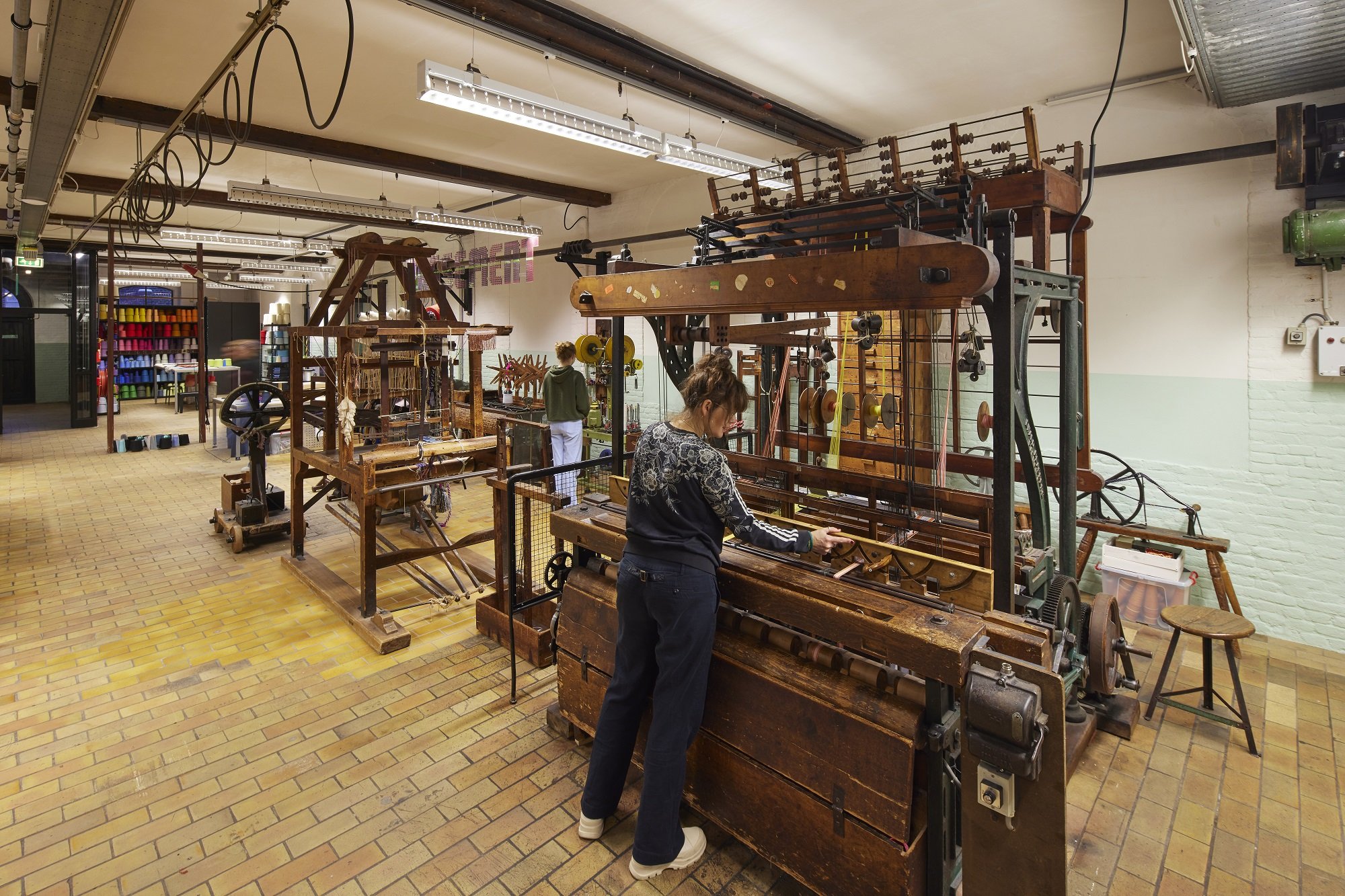
Spring School 2024
In 2023 and 2024 Dr. Guislain Museum will organise with several partners a series of international training events in three European cities with a rich textile heritage: Ghent, Leeds and Tilburg. Although each edition will have a specific focus (communities, co-creation and making/makers) the red thread will be arts-based engagements using textile heritage. The participants of the three editions will be connected through the development of an art engagement using a textile source under the guidance of artist and researcher Claire Wellesley-Smith.
For third and final edition of this series, Dr. Guislain Museum will team up with City Museum Tilburg, TextileMuseum and Arts & Sciences University College London. Together they’ll deliver the International Spring School Cultural Heritage & Wellbeing: Textile Cities from Monday 3 until Friday 7 Juni 2024 in Tilburg (NED).
For five days the participants receive a theoretical underpinning and are going to be guided in developing a wellbeing offering. The participants will encounter a wide range of inspiring cases where making is used for the improvement of the wellbeing.
The Spring School is to be delivered by a highly experienced team of experts who are leading in different fields connected to heritage, community engagement and wellbeing:
- Bart De Nil, expert wellbeing, culture and community engagement, Belgium
Developed training programs and published several books about cultural heritage, health and wellbeing based on this own experience as a practitioner and researcher. Organised and delivered many international training programmes.
- Bart Marius, artistic director Dr. Guislain Museum, Belgium
Is leading an internationally renowned museum about mental health that uses its museum grounds as a place of care. Their focus is on creative community engagement in co-operation with neighbourhood health centres.
- Claire Wellesley-Smith, researcher and artist, United Kingdom
She specialises in long-term engagements in post-industrial textile communities across the north of England. Her research explores connections through textile-based activities that link health, wellbeing and heritage.
- Petra Robben, City curator and director City Museum Tilburg, The Netherlands
- Tamira Waszink, Program maker TijdLab City Museum Tilburg, The Netherlands
- Thomas Kador, lecturer in Creative Health, University College London (UCL) Department of Arts & Sciences, United Kingdom
Is a material culture specialist with research interests in the health and wellbeing potential of (cultural) spaces, collections and their objects. He convenes UCL’s MASc Creative Health programme, which focuses on non-clinical, asset based health interventions.
Organised in Tilburg
From Tilburg, Stadsmuseum Tilburg and TextielMuseum have joined the Spring School as the objective is closely aligned with the policy plans of their own organizations and the municipality of Tilburg. “Art and culture with social impact must be perpetuated,” the Cultural Plan states. After all, projects based on art, heritage and identity can contribute to solving various social challenges.
Who is this training course for?
· Professionals working in cultural heritage organisations (museums, archives, galleries,
libraries with special collections)
· Practitioners working with heritage in community engagement and creative health
· Students and researchers in the field of creative health, museum studies, etc.
At the end of this training course, you'll be able to develop a resource for a specific targetgroup or context, design wellbeing activities, make a detailed plan of a resource and present the rational of a resource to the group.
Practical information
Location: Different locations in Tilburg
Fee: 500,- EUROS (VAT excluded). Reduced fee for students: 350,- EUROS (VAT excluded). For this you will get lunches, refreshments and snacks during the sessions and breaks, course materials.
All other expenses are borne by the participants. Attending the social program is not mandatory. There’s a very large variation of accommodation in Tilburg.
Participants are expected to bring their laptop.
Maximum 20 participants. Places in the spring school are limited to ensure the quality and depth of the interactions and discussions. The organisers also aim to ensure a diverse group of participants.
How to register
Send an email stating your name, position and /or institution to: textilecities@gmail.com
You’ll receive confirmation. If your registration is accepted, you’ll receive an email with more details.
The invoice for the registration fee will be send to the participant after the confirmation. Your registration is only final after payment of registration fee.
The participants will receive in advance a briefing document with a detailed schedule of the spring school.
The spring school 2024 is organised by Dr. Guislain Museum in co-operation with City Museum Tilburg, TextielMuseum and Arts & Science University College London. The program of this training is developed and will be coordinated by Bart De Nil, who’s at the forefront in leading developments in relation to culture-led wellbeing in Flanders, Belgium and internationally.

ravensbrück
Aline Vervoort, Stefanie Claes's grandmother, was arrested with her parents in their home in Winksele during World War II. For a year, Aline stayed in the German women's concentration camp Ravensbrück. She survived those dark months full of cold, hunger and abuse. Her life was forever marked by the horrific events of war. Nothing was ever the same again.
As a child, Stefanie sometimes dreamt that soldiers invaded her street and she had to flee. But it was not until she was 16 that she really realised the tragedy that had taken place in her family, that she started having conversations about it with her grandmother and mother. Gradually, it became clear that her family's war past was everywhere between, in, on and under.
With Mia Kermis, Stefanie developed her special theatre language: small, artisanal, personal and expressive. This way of storytelling continues to theatricalise the story of Aline Vervoort, and its echo through the generations.
As inspiration for ravensbrück, Stefanie drew on conversations with her grandmother and her mother and snippets from personal letters, in addition to documentaries, historical reference works and interviews with trauma experts. ravensbrück is a wordless and expressive performance for adults and (their) children aged 10 and up, for a limited audience. More than about the literal meaning of war trauma, ravensbrück is about how certain events have a lifelong effect in your life. Three generations of women take centre stage, because everyone is a child of someone.
Practical
> Do. 2.05.2024 (8pm) + Fri. 3.05.2024 (8pm)
> Museum Dr. Guislain
> Click here for tickets
Concept, ontwerp & spel Stefanie Claes / Dramaturgie & feedback Sofie Van der Linden, Barbara Claes & Simon Allemeersch/ Lichtadvies Marlies Jacques / Grafische vormgeving Mario Debaene / Productie Lucinda Ra / Coproductie De Studio & VIERNULVIER / In samenwerking met De Grote Post, Museum Dr. Guislain & c o r s o / Met de steun van De Vlaamse Gemeenschap, Stad Gent & deAuteurs / Met dank aan Algemeen Rijksarchief Dienst Archief Oorlogsslachtoffers / Spreiding Vincent Company
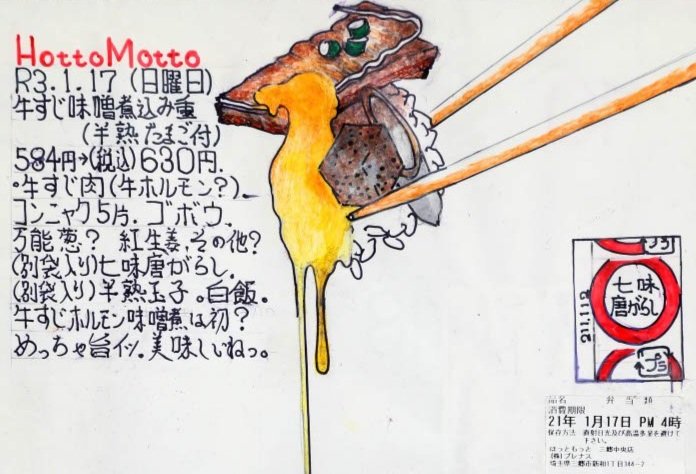
Ikigai
Itsuo Kobayashi, Untitled, 2021, Collection of the artist.
Ikigai is a Japanese concept that resembles the term raison d’être. What makes life worth living? What are we searching for? Questions that can have multiple answers and are different for each one of us. Ikigai is about a personal quest, inspired by our own personal needs and those of our environment. A concept that connects us, sharpening our focus. Now and then we all take stock of our lives. By reflecting on what we really want in life, we get a better idea of who we are. But representing the world in which we live also promotes awareness and engagement. Ikigai shows what makes life worth living.
Kunsthuis Yellow Art from Geel has joined forces with Aiseikai, a Japanese welfare organisation that promotes the work of artists with a disability. Yellow Art is an art studio for people with mental vulnerability, and is affiliated with OPZ Geel, a public psychiatric care and knowledge centre in the city of Geel. It is a safe space for meeting and imagination. The artists of this Belgian art studio collaborated with their Japanese colleagues through a mail art project.
Besides being the fruit of this interaction, Ikigai is also unique as this is the first time many of these Japanese artists will be showing their work in Belgium. All the artists offer a unique perspective on their ikigai, starting from their cultural background and artistic practice, with artworks ranging from visual diaries and sophisticated pastel drawings to imaginary cityscapes and sculptures made of folded leaves.
The exhibition takes you on a journey, with the imagination of these Belgian and Japanese artists charting your course. An opportunity to explore your own ikigai.
© Annelies Vrints, Danny Smolders, Norimitsu Kokubo, Mina Seino
Partners:
With the support of:
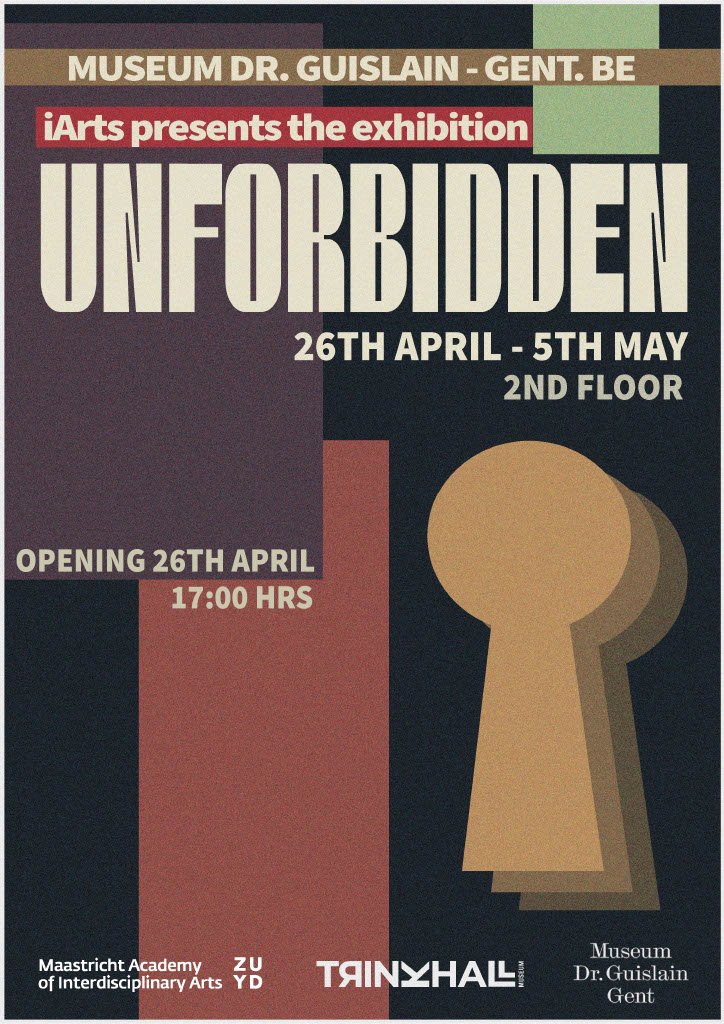
UNFORBIDDEN
iArts year one invites you to visit “Unforbidden”, an exhibition with psychiatry and psychology as its focal point. The students have viewed the Unhinged and Off-Comics exhibition at museum Dr.Guislain, Ghent, and L’événement d’être là at museum Trinkhall, Liege. In response to this, the students have conducted artistic and theoretical research, which has resulted in a collection of artworks expressing their findings. Through these diverse artworks they invite you to contemplate the complexities of the human mind, offering unique perspectives on emotion, cognition and identity.
We look forward to welcoming you!
Opening night: Friday 26th of April, 17.00 - 20.00, works will be visible until Sunday 5th of May, at Museum Dr. Guislain
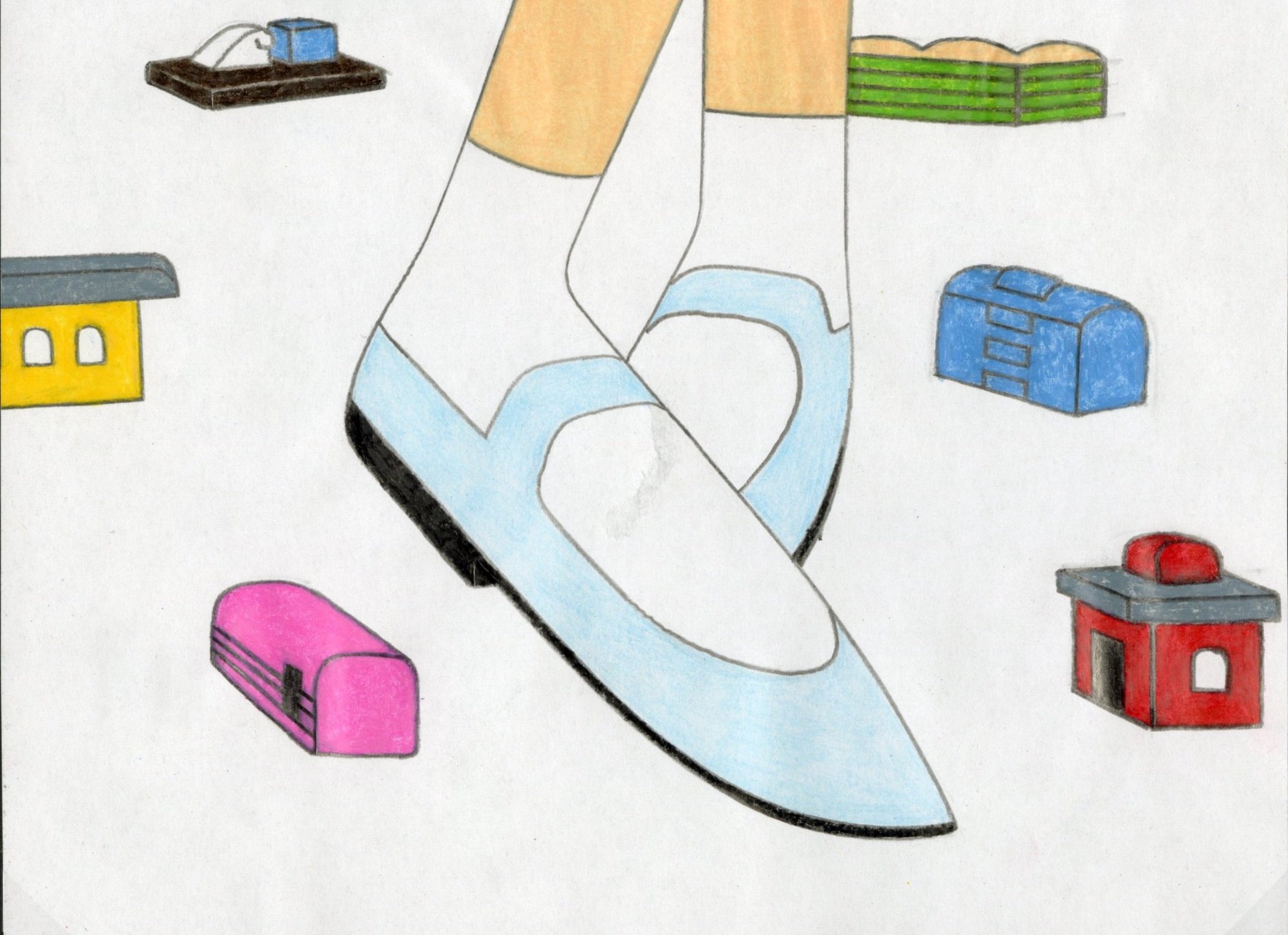
Off-Comics: kidsedition ✏️
Tomoyuki Hirano, New Miho-san Series 1, 2012, Collection artist, Machida.
Explore the Off-comics exhibition with a guide! Playfully discover extraordinary comics and brilliant illustrators. Then it's up to you! Get to work like a real artist in our drawing studio.
Everyone is welcome, as long as you love to draw! ✏️
Practical
> Drawing workshop + guided tour
> 2 pm - 4 pm (we meet at the reception)
> Age level: 5 - 10 years
> Ticket: 3 euros/child (+ entrance ticket for an adult)
> Registration via info@museumdrguislain.be

EGGHUNT
Tomoyuki Hirano, New Miho-san Series 1, 2012, Collectie kunstenaar, Machida.
Come and find (wooden) eggs during the first week of the Easter holidays! Decorate your egg according to the theme of the Off-Comics exhibition: comics and cartoon characters! Hang your egg with a ribbon on the branches of the willows in the courtyard garden.
Afterwards you will receive a bag of chocolate eggs! Ask at the reception desk.
Everyone is welcome to look for an egg in the courtyard garden.
TIP: There are not only eggs to collect, but also golden stars! Find a star and choose a nice present at the reception!
Practical
Find and decorate eggs from Saturday 30.03 to Sunday 7.04.2024 during the museum's opening hours. You can find the paint & chocolate eggs at the reception desk!

Grafixx@Guislain
Off-Comics presents an extraordinary history of the comic strip. Word and image come together in work that flouts all the rules. Heroes like Tintin, Captain America or Tex Willer appear in personal fantasy worlds and new protagonists come to life.
On the occasion of the expo, Grafixx is curating a special day programme at Museum Dr Guislain in Ghent on Saturday 23 March! Come and listen to the book club with Martha Verschaffel, Gabri Molist and Kaylan Saro, join the workshop with Kim Troubleyn, or be tempted to buy in the zine fest, with self-published works by artists from all over the world.
Programme
13h - 17h: Zine fest
A fresh portion of delectable small press will be served at the zine fest. Bookworms and image hunters will enjoy a carefully chosen selection of picture books, comics and zines from international authors and exciting publishers.
2pm - 5pm: workshop
Kim Troubleyn will teach you to etch with home, garden and kitchen tools! Join the table at any time.
15h - 16h: book club
During the book club, Martha Verschaffel, Gabri Molist & Kaylan Saro, together with Obi Mundorff, open their bookcase, and with it a piece of their creative soul. They will talk about their own recent publications, reveal their fondest sources of inspiration, and scrutinise favourite publications.
FREE EVENT + REDUCED ENTRANCE EXPO OFF-COMICS
© Kaylan Saro, Martha Verschaffel en Gabri Molist



